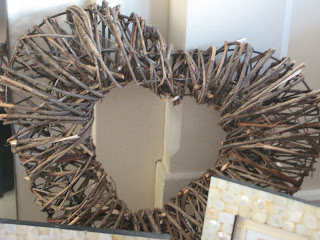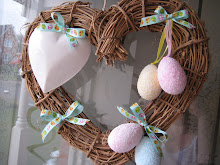I am a very reflective person - almost too much I wonder sometimes - I like to mull things over, chuck in few what if's etc.... We use it a lot at work - Reflective Practice, as away of learning, improving our knowledge, learning through the experience.
So my first thought, having committed myself to this for the next 6 weeks, was what did Lent mean to me? & thinking about it, I don't think I've ever observed Lent.
I was brought up in an active Christian household - hence my biblical name. I think my parents in my early years , would say they were non-denominational, free church people. I cannot remember a lot of 'traditional worship' as a small child, I think there were a lot of house groups, but there was also a strong sense of sharing - and this has sharing has continued to this day with my mum & dad. They offer a very open house, welcoming fellow christians to stay if they need a room for the night when on their travels. I have often said that I could turn up to M&D house, to find a burglar in the house, and I would assume it was one of their friends who'd come to stay.
As mum and dad moved further north, the family settled into a more formal worship, at Baptist, C of E and more evangelical churches.
By the time we moved to Derbyshire, I was in my fully fledged teenage angst years - where what I'd been brought up to believe was questioned, argued - and almost at points, raged against. Peers told me it was 'square' to be in the Christian Society (can any one else remember being 'square'?). I didn't want to stand out - I wanted to blend in with my counterparts, a brief spell of being bullied, had reinforced the need to fit in. Sociology taught me that it was a form of control of the masses, for example Methodism (perhaps the church that I felt most at ease in) with its quiet practice and abstinence, was encouraged by the Mill owners as a way of ensuring well behaved workers. I felt cross at what I saw of people, not practising what they preached, even though my mum, would say that we are only human, not perfect. And most of all I questioned - is there only one right faith? How can good, caring people, suffer eternal damnation, because they were Muslim, Buddhist, Jewish or Christian?
I do not currently attend a church, yet I still feel a sense of faith. I have seen too much, felt too much over the years to believe that death is final. I've witnessed things that cannot be accounted for by medicine or science. I've watched a strong faith be of comfort to those facing death, and those facing the loss of someone. I've watched as people have drawn strength form their faith, and a times felt that things have had a 'helping hand'. I have drawn strength and comfort, given thanks to my God, whom I believe is a kind and caring God, who will hold people in his comfort. I have given thanks for his love (and the odd needed car parking space).
I think I am still on a personal journey - of finding what feels right for me. When I talk to others of what I believe in, I always say, that what gives me faith, strength and comfort is this prayer. It never fails to move me, and it is what I carry in my heart day to day, its how I try to live and practice my beliefs.
The prayer attributed to the 13th century Saint Francis of Assisi, originated in its current form in Franc in 1912. It became known as the prayer for peace, and was widely used as a comfort for the soldiers in WW1. Since then it has been quoted from persons such as Archbishop Tutu, to Margaret Thatcher. Its been widely broadcast in films such as Rambo, to the late Princess Diana's funeral. Mother Teresa used it as part of her morning devotions.
It was also the hymn sung on my first visit to the Hospice Chapel, on my first week in my new job.
Coincidence? or is someone giving me a nudge?
Love Lydia xx
It was also the hymn sung on my first visit to the Hospice Chapel, on my first week in my new job.
Coincidence? or is someone giving me a nudge?
Love Lydia xx






























































